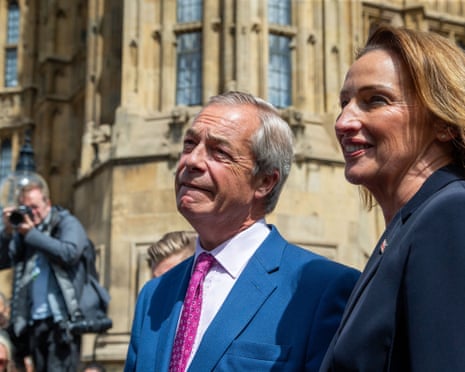Top Stories
Racism and Representation in UK TV Adverts Spark Controversy

Recent discussions surrounding racism in television advertising have sparked significant controversy in the UK. The debate escalated after comments made by various public figures, which some interpreted as racially insensitive. Notably, Nigel Farage defended an MP’s complaint about the portrayal of diverse racial groups in adverts, labelling the remarks as “ugly” but not “deliberately” racist on October 27, 2023. This incident reflects a deeper, troubling issue regarding how race and representation are addressed in media.
Critics argue that the perspective of racism as unintentional prejudice trivializes its pervasive nature. For instance, Frank Hester previously suggested that Diane Abbott “makes you want to hate all black women” and inferred that she “should be shot.” Similarly, Robert Jenrick commented on the absence of “another white face” during a visit to Birmingham. Both figures later claimed their remarks were not racially motivated, raising questions about the broader implications of such statements.
Rod Earle from Shalford highlights that racism is not confined to overtly extremist views; it permeates everyday interactions. He argues that most individuals, regardless of race, have likely made racially charged comments at some point. Earle cites James Baldwin, an influential American civil rights activist, who noted that “innocence constitutes the crime” in matters of racism. This suggests that denial only perpetuates systemic issues.
In response to the discourse, Sarah Pochin, a member of the Reform UK party, expressed frustration over the representation of Black and Asian individuals in advertisements. She stated that adverts are “full of black people, full of Asian people,” implying that their presence exceeds their proportion in the UK population. While she might argue her comments stem from a concern about demographic representation, critics question the underlying motivations for her distress. Richard Norman from Canterbury suggests that Pochin’s remarks reflect an obsession with proportionality rather than an objective critique of representation.
This sentiment is echoed by Paul McGilchrist, who perceives Pochin’s comments as reminiscent of past complaints from notable figures like Ludovic Kennedy, who voiced similar concerns over two decades ago. McGilchrist argues that such reflections indicate that the struggle for inclusion remains a contentious issue. The ongoing debate about representation suggests that for many, the progress made towards inclusivity can feel precarious and subject to sudden challenges.
In contrast, Jacqui White from Whitstable argues that Pochin fundamentally misunderstands the advertising industry. She posits that companies aim to attract the broadest audience possible, which naturally leads to a greater presence of diverse families in promotional material. White asserts that this approach is not a manifestation of a “woke conspiracy,” but rather a straightforward response to market dynamics.
As discussions unfold, questions also arise about the thresholds for acceptable discourse within political parties. Peter Brooker from West Wickham provocatively asks Farage to clarify what kinds of comments would warrant expulsion from his party, highlighting ongoing tensions around accountability and racism in public discourse.
In summary, the recent controversy surrounding racism and representation in UK television advertising has ignited a broader conversation about societal attitudes towards race. The diverse perspectives presented illustrate the complexity of these issues and underscore the need for continued dialogue and reflection on how race is represented across media platforms. As the debate progresses, it remains crucial to examine the implications of these discussions on public perception and policy.
-

 Health3 months ago
Health3 months agoNeurologist Warns Excessive Use of Supplements Can Harm Brain
-

 Health4 months ago
Health4 months agoFiona Phillips’ Husband Shares Heartfelt Update on Her Alzheimer’s Journey
-

 Science2 months ago
Science2 months agoBrian Cox Addresses Claims of Alien Probe in 3I/ATLAS Discovery
-

 Science2 months ago
Science2 months agoNASA Investigates Unusual Comet 3I/ATLAS; New Findings Emerge
-

 Science2 months ago
Science2 months agoScientists Examine 3I/ATLAS: Alien Artifact or Cosmic Oddity?
-

 Entertainment2 months ago
Entertainment2 months agoLewis Cope Addresses Accusations of Dance Training Advantage
-

 Entertainment5 months ago
Entertainment5 months agoKerry Katona Discusses Future Baby Plans and Brian McFadden’s Wedding
-

 Science2 months ago
Science2 months agoNASA Investigates Speedy Object 3I/ATLAS, Sparking Speculation
-

 Entertainment5 months ago
Entertainment5 months agoEmmerdale Faces Tension as Dylan and April’s Lives Hang in the Balance
-

 Entertainment2 days ago
Entertainment2 days agoAndrew Pierce Confirms Departure from ITV’s Good Morning Britain
-

 World3 months ago
World3 months agoCole Palmer’s Cryptic Message to Kobbie Mainoo Following Loan Talks
-

 World4 weeks ago
World4 weeks agoBailey and Rebecca Announce Heartbreaking Split After MAFS Reunion









